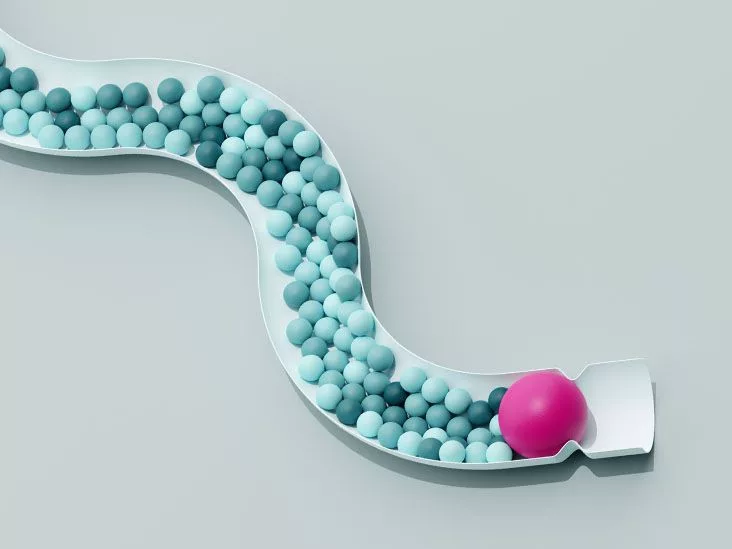Most of us have been there – the uneasy feeling of a stalled digestive train, the gentle ache that just won’t quit, and the “maybe it’ll pass on its own” hope that turns into a waiting game. The good news? In the majority of cases, constipation clears up in a few days to a couple of weeks. When it hangs around longer, it usually signals something deeper that needs a bit more attention.
Below you’ll find a friendly, step‑by‑step guide that breaks down exactly how long constipation lasts, why it stretches out, and what you can do right now to feel better. Think of it as a chat over coffee – practical, warm, and aimed at getting you back on track without the jargon.
Typical Time Frame
Understanding the usual timeline helps you decide when to relax and when to call for help.
How many days does an average episode last?
According to Healthgrades, most short‑term constipation eases within 2–3 days if it’s mild, 4–7 days for a moderate case, and takes more than a week when the underlying cause needs extra support. In practice, if you’re still straining after three days, it’s a good idea to try a simple home remedy or OTC aid.
When does constipation become “chronic”?
Chronic constipation isn’t a label you pick up over a weekend. The Merck Manual defines it as fewer than three bowel movements per week that persist for three months or longer. It’s the kind of trouble that often needs a deeper look—dietary patterns, medication side‑effects, or an underlying health condition.
What does “long‑lasting” really mean?
Duration hinges on the root cause. A temporary low‑fiber diet might cause a three‑day hiccup, while an issue like irritable bowel syndrome with constipation (IBS‑C) can stretch symptoms over months. Knowing which camp you fall into is the first step toward the right constipation treatment.
Key Influencing Factors
What turns a brief pause into a prolonged struggle? Below are the most common culprits.
Which lifestyle habits prolong constipation?
Think of your gut as a well‑oiled machine. It needs three essential inputs to keep moving:
- Fiber – Aim for 25–30 g daily (whole grains, beans, fruits, veggies). A low‑fiber diet is the #1 driver of longer bouts.
- Hydration – About 6–8 cups of water a day keep stool soft and easy to pass.
- Movement – Even a 10‑minute walk after meals stimulates colon contractions.
Harvard Health points out that neglecting any of these three can easily add a few extra days to the episode.
Can medications lengthen the episode?
Many over‑the‑counter and prescription drugs have constipation as a side effect:
- Iron and calcium supplements
- Antacids containing aluminum or magnesium
- Opioid pain relievers
- Antidepressants and some antihypertensives
If you’ve started a new medication and notice a slowdown, talk to your prescriber about alternatives or a scheduled “laxative break.”
How do medical conditions affect duration?
| Condition | Impact on Duration |
|---|---|
| IBS‑C | Weeks to years; often intermittent |
| Hypothyroidism | Persistent; improves with hormone therapy |
| Diabetes | Slow motility; may need ongoing management |
| Neurological disorders (Parkinson’s, MS) | Chronic; requires specialized treatment |
These longer‑lasting causes usually need a combination of diet, medications, and sometimes physical therapy.
Does age matter?
Older adults often experience a slower digestive transit time. The ASCRS notes that reduced muscle tone and medication load can stretch episodes, making a three‑day episode feel like a week. Simple adjustments—more fiber, regular water intake, and gentle stretching—can make a big difference.
Red Flag Timelines
While most constipation is harmless, some signs scream “seek help now.”
At what point should I call my doctor?
If you haven’t had a bowel movement for more than three daysand you experience any of the following, it’s time to pick up the phone:
- Severe abdominal pain or cramping
- Blood in the stool or rectal bleeding
- Vomiting, fever, or unexplained weight loss
- Inability to pass gas
These symptoms could indicate an obstruction, infection, or another serious condition that needs professional evaluation.
What are emergency signs?
When the gut is truly in distress, you may feel:
- Sudden, intense abdominal swelling
- Persistent nausea or vomiting that won’t stop
- Sharp, unrelenting pain that doesn’t improve with OTC medicines
These are emergencies – head to urgent care or the ER right away.
How often do I need a follow‑up if it’s chronic?
For chronic constipation, schedule a check‑in with your primary care provider every 3–6 months. This helps track response to treatment, adjust dosages, and screen for any new underlying issues. If you’re under a gastroenterologist’s care, follow their specific timeline.
Quick Relief Options
Ready to feel better now? Here are the fastest, safest ways to get moving.
What self‑care steps work in 24‑48 hours?
Start with the basics:
- Fiber boost: Add a handful of prunes, a scoop of psyllium, or a bowl of oatmeal to your breakfast.
- Hydration: Swap one soda for a glass of water; consider warm lemon water in the morning.
- Gentle movement: A 10‑minute walk after dinner signals the colon to contract.
Which over‑the‑counter (OTC) options are safest?
There are three main families of OTC laxatives. Choose based on your symptom profile:
| Type | How it works | Typical onset |
|---|---|---|
| Stool softeners (e.g., docusate) | Increase water content in stool | 24–48 hrs |
| Osmotic laxatives (e.g., polyethylene glycol, milk of magnesia) | Draw water into the colon | 12–24 hrs |
| Stimulant laxatives (e.g., bisacodyl, senna) | Stimulate colonic muscle contractions | 6–12 hrs |
Start low, follow the package directions, and avoid daily use to prevent dependence.
When are prescription meds indicated?
If OTC options don’t cut it after a week, a doctor may suggest:
- Lubiprostone – helps fluid move into the intestine.
- Linaclotide – relaxes gut muscles and increases fluid secretion.
- Plecanatide – a newer choice for chronic constipation.
These are especially useful for IBS‑C or other long‑term conditions. Verywell Health notes that they often start working within a few days, but a physician’s guidance is crucial.
Can natural remedies help?
Yes! Here are a couple of gut‑friendly tricks:
- Prune or plum juice – One cup can provide both fiber and a mild sorbitol laxative effect.
- Flaxseed – One tablespoon mixed into yogurt adds soluble fiber and omega‑3s.
- Magnesium citrate – A popular supplement that works fast, but stay well‑hydrated.
What role does the gut microbiome play?
Emerging research shows that a balanced microbiome can improve stool frequency. Probiotic strains like Bifidobacterium lactis and Lactobacillus rhamnosus have modest evidence for easing mild constipation. Including fermented foods (yogurt, kefir, sauerkraut) can be a gentle, tasty addition.
Managing Chronic Cases
When constipation sticks around for months, it’s time to think long‑term.
How is chronic constipation diagnosed?
Doctors usually follow the Rome IV criteria: fewer than three bowel movements per week, hard stool, straining, or a feeling of incomplete evacuation that lasts at least three months. The work‑up may include blood tests, thyroid panels, and occasionally a colonoscopy to rule out structural problems.
What long‑term strategies are evidence‑based?
- Consistent fiber intake – Keep a daily log; aim for 25–30 g.
- Scheduled bathroom time – After meals, sit on the toilet for 5‑10 minutes without pressure.
- Regular physical activity – Even light yoga can stimulate the colon.
- Mind‑body techniques – Stress reduction (meditation, deep breathing) can lessen IBS‑C flare‑ups.
When is surgery ever needed?
Surgery is a last resort, reserved for severe colonic inertia or obstructive disease that doesn’t respond to medication. Options include a subtotal colectomy or sacral nerve stimulation. These are rare and only considered after exhaustive medical therapy.
Lifestyle tweaks that keep it away for good
Here’s a quick cheat sheet you can print:
- Fiber‑rich breakfast: oatmeal + berries + chia
- Mid‑day snack: raw veggies + hummus
- Hydration: 8‑oz water every hour (set a phone reminder)
- Evening walk: 15 minutes after dinner
- Bathroom habit: go when the urge first appears, no waiting.
FAQ Snapshots
How many days can constipation last before it’s serious?
If you haven’t had a bowel movement for more than three days and you’re experiencing pain, bleeding, or vomiting, it’s time to seek medical care.
What’s the fastest OTC relief?
Osmotic laxatives such as polyethylene glycol often work within 12‑24 hours, making them the quickest over‑the‑counter option.
Is a daily bowel movement normal?
No. Normal frequency ranges from three times a week up to three times a day. Daily isn’t a rule; it’s just one end of the spectrum.
Can stress make constipation linger?
Absolutely. Stress can slow gut motility, adding days to an otherwise short episode.
Conclusion
To sum it up, most constipation is a short‑term visitor that clears up in a few days to a couple of weeks when you give your gut the right fuel, fluids, and movement. If it drags on past three days with warning signs, or if it becomes a chronic pattern lasting months, it’s worth reaching out to a healthcare professional for a deeper look.
Remember, you have the tools to help yourself: a fiber‑rich diet, plenty of water, a bit of daily movement, and, when needed, safe OTC or prescription aids. Keep a simple log of what works for you, listen to your body, and don’t hesitate to ask for help when the timeline feels off.
What’s your experience with constipation? Have you found a particular food or habit that makes a difference? Share your story in the comments below – we’re all in this together, and your tip could be the key that helps someone else feel relief faster.


















Leave a Reply
You must be logged in to post a comment.